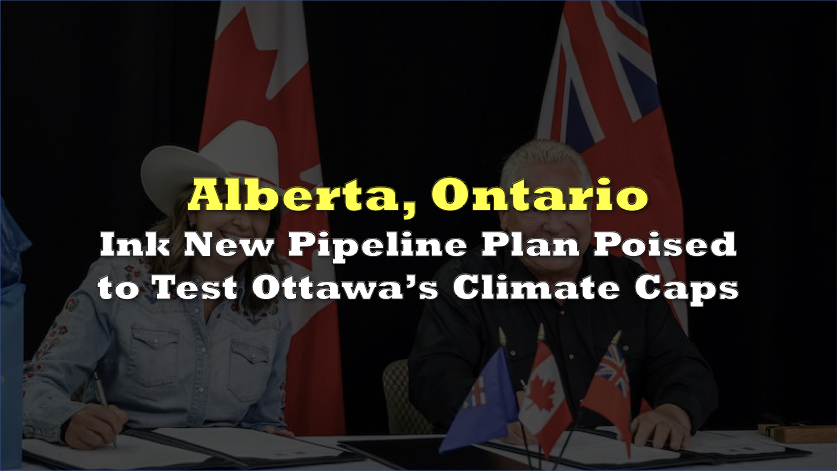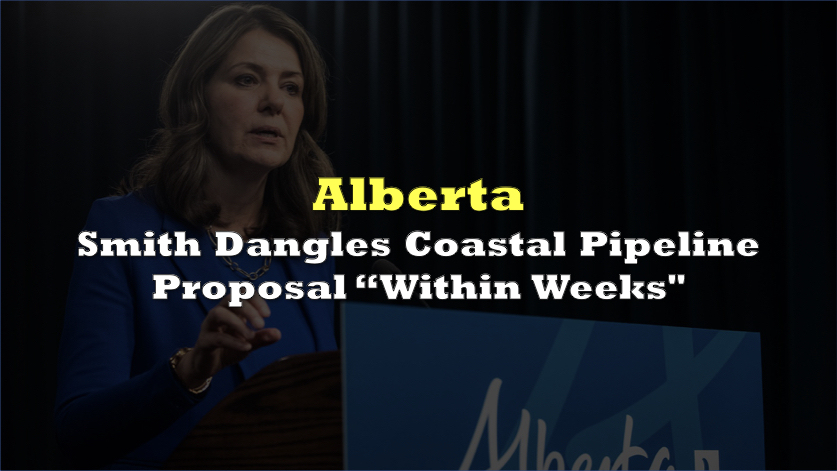Alberta Premier Danielle Smith and Ontario Premier Doug Ford have signed twin memoranda of understanding that put a single objective front and centre: driving a new pipeline capable of moving Alberta bitumen straight to southern Ontario—and forcing Ottawa to step aside if it blocks the way. 
“The world changed in November,” Smith said, referring to renewed US tariff threats under President Donald Trump. “Canadians understand we’ve got to start acting like a country.”
BREAKING: Alberta and Ontario agree to new Alberta bitumen pipeline directly to southern Ontario. Also have agreed to do whatever it takes to get Ottawa to axe the oil and gas production cap, no new pipelines law, tanker ban and net zero power regulations.
— Rob Anderson (@FreeAlbertaRob) July 7, 2025
Huge day for Alberta,… https://t.co/yYD5ZpKpZ6
The first MOU orders officials to map a corridor for pipe, rail, and transmission lines that would link Fort McMurray to Ontario refineries and the steel mills that will supply the project’s plate and pipe.
It also commits both provinces to lobby for repeal or overhaul of the Impact Assessment Act and other federal files Smith says have “harmed” Canada’s energy-sector growth.
Ford pitched the corridor as an industrial policy play, not just a pipeline as new rail lines would “connect Ontario’s Ring of Fire critical-mineral projects to western ports.”
Ontario in turn won Alberta’s pledge to buy Canadian-made vehicles for its public fleet and to study small-modular reactors to power an enlarged grid—concessions that give Ford cover with auto workers and electrification advocates. 
Alberta NDP leader Naheed Nenshi warned that Smith’s flirtation with separatism has already chilled investment. Until the province tackles trucking rules, labour standards and building codes, “these announcements are more about political theatre than real progress,” he said.
Prime Minister Mark Carney, in Calgary for Stampede, hinted the federal large-project list may already include a separate line to BC’s northwest coast and a West Coast export conduit is “highly, highly likely” to appear on cabinet’s shortlist. Smith called that “a positive sentiment” but pressed for immediate action to clear the Ontario route.
If Ottawa refuses, constitutional lawyers expect a reprise of 2024’s Impact Assessment reference case: the Supreme Court struck down sections that overreached provincial jurisdiction, but left enough teeth for cabinet to stall projects it deems climate-inconsistent. That sets up a collision between two premiers promising shovels in the ground and a federal net-zero timetable that caps oil output growth after 2030.
Information for this story was found via Edmonton Journal and the sources mentioned. The author has no securities or affiliations related to the organizations discussed. Not a recommendation to buy or sell. Always do additional research and consult a professional before purchasing a security. The author holds no licenses.









